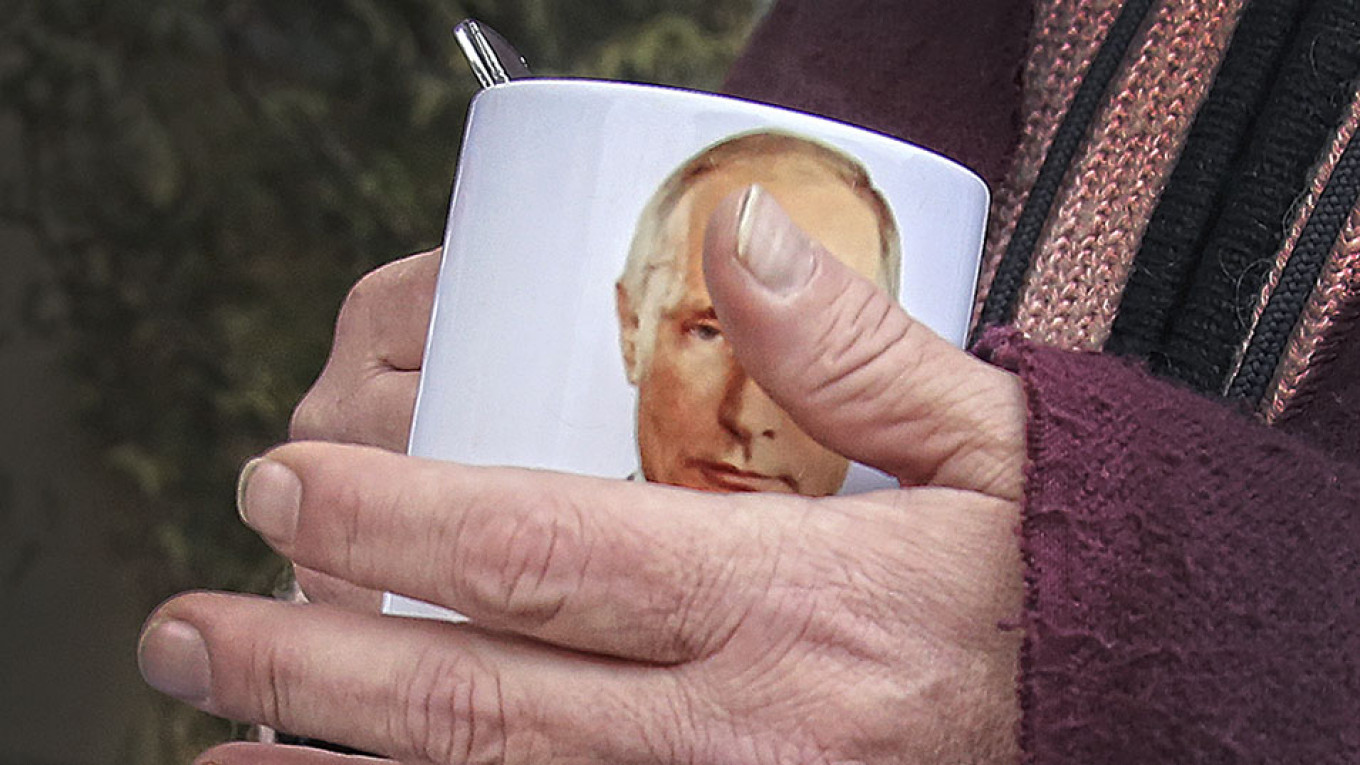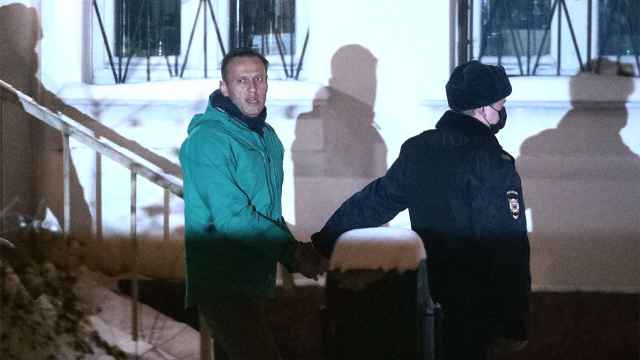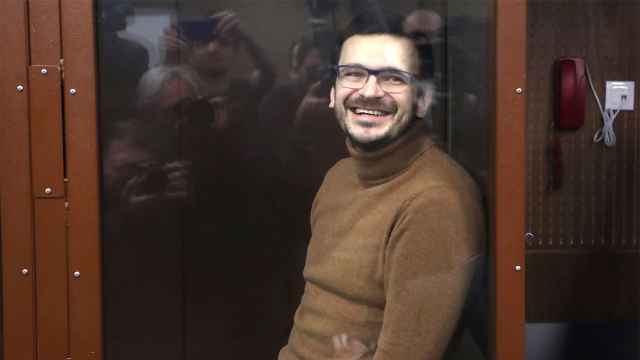President Vladimir Putin’s trust rating has fallen below 32 percent. Even the Kremlin-friendly and fawning VTsIOM agency admits that his numbers have dropped by 15 percent this year. Putin’s inner circle is in a fret: they have a fetish for these figures, seeing them as the foundation of their faith in their eternal hold on power. But maybe they are worried over nothing.
After all, what approval rating did former Soviet leader Leonid Brezhnev have? The very question is absurd.
The longer Brezhnev postured at the podium with his star-spangled chest of medals, the less coherently did he convince anyone that socialism was coming and the more he turned from a participant in life to a figure in the background — just one more element in the Soviet still life of vodka, anchovies and a carpet hanging on the wall. What sort of approval rating does a carpet have?
Regarding vodka, by the way, the Health Ministry reported in April that Russians now drink 50 percent less of it, while VTsIOM reported in May that consumption had actually increased. For some reason, people tend to believe VTsIOM more. This also fits in with the eternal Soviet-Russian “landscape” that is littered with morning drunks, people unobtrusively sleeping off their buzz in the shade of public flowerbeds, souls fresh out of detox [MS1] and eulogized in the verses of Vysotsky and Voznesensky.
The answer, according to Nikolai Patrushev, head of the nearly omnipotent Security Council, is to build more detox centers.
It seems that more and more of our compatriots — denizens of the sacred land that is Russia — are inspired to sacrifice themselves to the country’s age-old favorite pastime.
This has nothing to do with ratings. The problem is the growing sense of hopelessness. True, life in the capital and major cities is tolerable, though not as cheery as it was, say, seven or eight years ago.
Television, meanwhile, paints a picture of a triumphant Russia, a country fending off outside enemies — whose Youth Army light up the world with their smiles as they encourage adults to go to the polls and vote for He Who Need Not Be Named.
But none of this matters. They say the Soviet Union buckled under the weight of economic problems, an arms race it could not afford, the Cold War and a glaring backwardness in everything by which ordinary human life is measured.
And perhaps those events were important, but more important now is the sense of futility and hopelessness, the impression that things are going nowhere and will continue going that way forever. That’s enough to make a person crazy.
This “forever” discredits everything else. It is impossible to take seriously the words of a man who clings to power like a tick clings to its host.
It turns out that his person is more important than his words, and it isn’t clear how we could look at him in any other way. If “eternal rule” is what you want, then you’ll eventually stop being a part of life and become part of the background instead, deprived of the ability to influence affairs. Of course, time always works against the individual in such games — even the most influential.
In time, people themselves begin to take steps against their hopelessness — as happened, for example, when citizens in Yekaterinburg protested the construction of a new church on the site of one of the city’s few remaining parks. That battle is not over, but the main thing has already happened: they showed that resistance is possible. People can act, at least at the local level, without glancing over their shoulder every moment to check for Big Brother.
Or, in even more recent news, the Supreme Court of Tatarstan rescinded the fine against political activist Vasily Tarasov who had hung a banner reading “Putin is a thief” on a major bridge in Naberezhnye Chelny.
It turns out that the banner “does not violate the rules for beautification” of the city. And I would say that is also does not violate the law obligating citizens to show respect to those in authority. This is, first, because the law is not retroactive, and second, because as everyone knows, thieves carry a great deal of authority and people generally respect them.
This sudden outburst of good sense among ordinary people and even a court judge are like the first cracks in a concrete wall. There it stands, gray and imposing. You can’t get over it or around it, and there’s certainly no budging it.
But then a crack appears. And then another. Soon, people are swarming over a mound of rubble, wondering what they can build from all the little pieces.
A Russian language version of this article was originally posted in Republic.
A Message from The Moscow Times:
Dear readers,
We are facing unprecedented challenges. Russia's Prosecutor General's Office has designated The Moscow Times as an "undesirable" organization, criminalizing our work and putting our staff at risk of prosecution. This follows our earlier unjust labeling as a "foreign agent."
These actions are direct attempts to silence independent journalism in Russia. The authorities claim our work "discredits the decisions of the Russian leadership." We see things differently: we strive to provide accurate, unbiased reporting on Russia.
We, the journalists of The Moscow Times, refuse to be silenced. But to continue our work, we need your help.
Your support, no matter how small, makes a world of difference. If you can, please support us monthly starting from just $2. It's quick to set up, and every contribution makes a significant impact.
By supporting The Moscow Times, you're defending open, independent journalism in the face of repression. Thank you for standing with us.
Remind me later.








